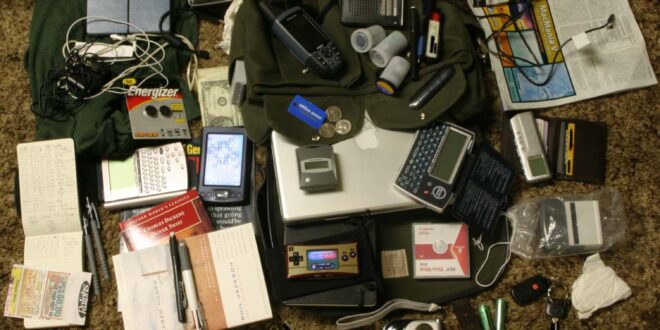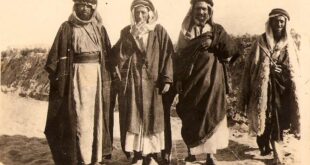Numerous alternative digital media outlets have been emerging recently in Lebanon in response to the country’s established traditional media that is highly partisan with editorial agendas often serving the Lebanese political and economic elites. Many of these outlets have been launched initially by independent researchers or civil society activists with no prior established journalism experience, but with common purpose to work in the public interest and address the traditional media’s dominant narratives and biased reporting. While such platforms have been emerging over the last decade, they have been gaining prominence with the eruption of the October 2019 protests, when thousands of Lebanese citizens took to the streets revolting against Lebanon’s precipitous economic and financial collapse.
Although seen as among the most diverse and vibrant in the Arab world, a region dominated by state-owned media, Lebanon’s traditional media – particularly television - has historically been linked to political parties - often sponsored by regional powers - or wealthy businessmen, reflecting a Lebanese society that is marked by political and sectarian divisions. More recently, since the start of the street uprisings in October 2019, Lebanese media coverage has exacerbated the tensions, with outlets that underplayed the protests ‘significance – those supportive of the government – and others that shifted their reporting priorities and sided with the protesters. In response, independent media platforms pressed to join the race, envisaging an opportune political moment to make an impact and to provide alternative narratives about real-time events that they deemed politically formative and fundamental to spark change in Lebanese society.
This phenomenon intensified with the tragic Beirut explosion on August 4, 2020 – a massive explosion at the port in Beirut killing at least 218 people and injuring thousands - creating a momentum for exposing corruption and demanding accountability and justice. However, right from the outset of the street protests, several journalists, bloggers, and activists have been facing defamation lawsuits – the result of defamation and slander laws embedded in Lebanon’s Penal Code - filed by politicians and government officials to silence dissent - and many inthose cases have even been assaulted by security forces. In other instances, journalists and activists have been beaten by demonstrators who support the country’s regime.
Although still nascent platforms with a modest audience mainly consisting of young and urban consumers, these alternative media outlets are becoming increasingly popular by publishing in-depth and investigative local content, propelled by digital technology and social media. In contrast with the news coverage by traditional media serving political propaganda, they largely report on various political and socio-economic issues such as corruption, economic mismanagement, and abuse of power in Lebanon and the broader Middle East. Even while lacking diversified funding sources, exacerbated by Lebanon’s economic collapse, and needing to bolster their organizational structure and editorial capacity, such outlets produce a thriving independent and investigative journalism - utilizing data-based research, sourcing, fact-checking, and high-quality writing - full of promise on the horizon of a new media landscape.
While it is not comprehensive or representative of the full array of alternative digital media outlets that have recently emerged in Lebanon, below is a list of seven key digital platforms that have received noticeable media coverage and that cover a variety of original topics including investigative journalism reports with content available in Arabic and English.
Raseef22
Raseef22 (رصيف22) is a Beirut-based digital media company covering a wide range of topics from 22 Arab countries including lifestyle, art, culture, economy, and politics, among others. Raseef22 was established in 2013. A bilingual Arabic-English platform, Raseef22 publishes various types of content including long-form and in-depth reports, Op-Eds, and hard news articles. According to its website, Raseef22 is published by Levant Laboratories SAL (مختبرات المشرق), a Beirut-registered publishing company. Real estate advisory and asset management executive Kareem Sakka is the founder of Raseef22, as well as Palestinian journalist Rasha Hilweh and Lebanese journalist Hassan Abbas who are its Co-editor-in-chiefs.
Initially launched as a blog inspired by the Arab Spring, Raseef22 has grown to become a widely read publication in the Arab world. For instance, the outlet has expanded its employee base to host an editorial team that spans multiple Arab countries and has reached a significant regional and global readership establishing itself as one of the largest Pan Arab digital media organizations. Late prominent Saudi dissident and journalist, Jamal Khashoggi, was also among Raseef22’s regular contributors.
Raseef22 describes itself as an independent media platform with a main mandate to nurture democracy and social justice in the Arab world through publishing innovative content revolving around local traditions but incorporating global stances as well. According to various news media citations, Raseef22 has been banned in Saudi Arabia in 2018 after it published a series of articles on the murder of Jamal Khashoggi. Raseef22 was also reportedly banned in Egypt in 2018 after reporting on media suppression in Egypt.
Daraj
Daraj (درج) is a Beirut-based digital media company that was established in November 2017, with focus on progressive topics such as women and minorities’ rights, climate change, and freedom rights across Lebanon and the Arab world. Daraj publishes various media content including investigative reports, feature stories, opinion pieces, translated news articles, and multimedia material. It was founded by the established and well-known Lebanese journalists Hazem al-Amin, Alya Ibrahim, and Diana Moukalled, who have been serving as Daraj’s editor-in-chief, CEO, and managing editor, respectively.
While Daraj is primarily funded by various global donors, it strives to produce commercially driven content to diversify its revenue sources and aims, according to its founders, toward total financial independence in the next few years. According to its website, Daraj’s donors currently consist of several democracy promotion non-governmental organizations (NGOs) including U.S.-based Open Society Foundations, Belgium-based European Endowment for Democracy (EED), and Denmark-based media development NGO International Media Support (IMS).
Launched in light of the Arab Spring, Daraj has since expanded and broadened its geographic coverage and audience reach to establish itself as a successful and reputable independent media organization in Lebanon and the broader Middle East. For instance, Daraj has since its establishment partnered with several global and prominent investigative reporting outlets on multiple investigative projects, including most notably with the U.S.-based International Consortium of Investigative Journalists (ICIJ) – Daraj was for example one of 95 media outlets who partnered with ICIJ to release the “Paradise Papers” – and with the Bosnia and Herzegovina-based Organized Crime and Corruption Reporting Project (OCCRP) focusing on covering the banking crisis and related corruption issues in Lebanon. Most recently, Daraj was awarded the Best Digital News Startup in the Middle East’s award by the Germany-based World Association of News Publishers (WAN-IFRA) in 2019 and 2020, consecutively.
Megaphone
Megaphone (ميغافون) is a Beirut-based online media outlet that produces analytical multimedia content covering underreported local affairs and marginalized groups in Lebanon. Megaphone primarily operates as a social media-based outlet and publishes multimedia content on social media sites – for instance Instagram, YouTube, Twitter, and Facebook - in various formats such as video essays, direct coverage, investigations, and documentaries, among others. Megaphone also publishes political commentaries and opinion articles on its website. Megaphone was established in 2017 by Lebanese journalist, Jean Kassir, who also serves as its editor-in-chief, and a multidisciplinary team of volunteers including activists, researchers, designers, videographers, and students.
According to its website, Megaphone is currently mainly funded by several global donors including the European Endowment for Democracy (EED), Open Society Foundations, International Media Support, Rosa Luxemburg Stiftung-Beirut Office, United Kingdom-based civil society empowerment foundation The Asfari Foundation, Lebanon-based nonprofit civic organization Samir Kassir Foundation, Lebanon-based art and culture NGO The Arab Fund for Arts and Culture -AFAC, and French media development agency Canal France International (CFI).
Namely launched to counter official narratives by a biased Lebanese mainstream media, Megaphone has increasingly become popular during its coverage of the October 2019 protests. While prior to the protests, its production consisted of occasional videos posted monthly on social media, Megaphone expanded its coverage largely during Lebanon’s uprising with its videos - directly covering scenes from the protests - going viral and receiving vast viewership. Megaphone describes itself as a producer of explainer journalism, relying on simplified journalistic language – such as utilizing the colloquial Lebanese language – infographics, and short videos to cover local affairs and events. For instance, their most popular videos scrutinize speeches of politicians, exposing and analyzing their statements against facts and realities on the ground.
As-Safir Al-Arabi
As-Safir Al-Arabi (السفير العربي) is a Beirut-based nonprofit digital media organization that covers the entire Arab region with focus on marginalized groups such as women, youth, unemployed, and ethnic and religious minorities. As-Safir Al-Arabi publishes various content including essays, investigative reports, opinion articles, political commentaries, cultural stories, and visual paintings and photography; it translates a majority of its articles to French and English. The outlet also writes in-depth socio-political analysis of Arab affairs, however, in an accessible and easily understood form. As-Safir Al-Arabi was founded in 2011 by Nahla al-Chahal, a well-known Lebanese academic, sociologist, and journalist who also serves as the outlet’s editor-in- chief. Talal Salman, a prominent Lebanese journalist and the founder of Al Safir, one of the major pan-Arab Arabic-language daily newspapers in Lebanon that ceased its operations in late 2016, is among the chief writers of the publication. The team also consists of established researchers and journalists as well as bloggers, artists, and architects.
Published first as a supplement to Al Safir newspaper, As-Safir Al-Arabi said it was founded in the wake of the Syrian revolution in 2011 to provide in-depth analysis of the event. Although it was first sponsored by Al Safir, As-Safir Al-Arabi indicates that it has since its establishment maintained its editorial independence.
According to media citations, As-Safir Al-Arabi receives funding from various international donors as well as from writing commissioned content to several media and research centers – in line with As-Safir Al-Arabi’s editorial agenda - and providing consulting and training services.
The Public Source
Launched in 2020, The Public Source (مصدر عام) is a Beirut-based nonprofit digital media outlet that primarily reports on socio-economic and environmental issues in Lebanon, from a local perspective. A bilingual English-Arabic and quarterly publication, The Public Source publishes content in a variety of forms including investigative long-form reports, political commentary, essays, visual photography, and comics. The outlet also houses a whistleblowing platform, the first in Lebanon to be run by journalists.
The Public Source describes itself as a leftist outlet, and functions as a nonhierarchical collective where employees participate in equal decision-making; its focus topics include capitalism and neoliberalism, power and discourse, gender and feminism, migration and displacement, and the Beirut explosion, among others.
According to its website, The Public Source’s work is currently funded by global donors including the International Media Support (IMS), Germany-based civic education nonprofit Rosa Luxemburg Stiftung (RLS), and human rights organization Medico International. The outlet aims to establish total financial independence in the next few years, through subscriptions and memberships.
Maharat News
Maharat News (مهارات نيوز) is a Beirut-based nonprofit digital media outlet that covers a variety of topics involving media, public freedom, and human rights violations in Lebanon and the broader Middle East. It was established in 2014. Maharat News publishes in various forms such as investigative articles, blog posts, annual reports, and studies. It also houses a fact-checking platform and Maharat Magazine, a digital publication primarily covering media rights violations in Lebanon and the Arab world.
Maharat News is operated by Maharat Foundation, a Beirut-based freedom of expression NGO, which is founded and led by Roula Mikhael, a media leader and civil society activist in Lebanon and the MENA region. Maharat Foundation is a member of Canada-based IFEX, a global network of over 100 freedom of expression NGOs.
According to its website, Maharat Foundation is funded by a group of donors including UNICEF, UNDP, Netherlands-based international development NGO Hivos, U.S.-based media development NGO Internews, and Germany-based media development NGO Deutsche Welle Akademie.
Beirut Today
Beirut Today is a Beirut-based online newspaper covering various political, social, and economic topics in Lebanon. According to media citations, it was established in 2017. Beirut Today describes itself as a community-based journalism outlet with a mandate to advocate for human rights in Lebanon. A bilingual English-Arabic publication, Beirut Today namely publishes news articles, in-depth political and economic analysis, opinion pieces, and multimedia content. The outlet was co-founded by the well-known Lebanese economist and academic Jad Chaaban, Lebanese journalist and management consultant Marwan El Tibi, and Lebanese investment executive and entrepreneur Mansour Khalife.
According to its website, Beirut Today has received funding from the European Endowment for Democracy (EED), UK-based charity foundation Thompson Reuters Foundation (TRF), and Qarib and Qudra projects funded by the French Development Agency (AFD); Beirut Today has also partnered with Spain-based sustainable water development nonprofit organization AMWAJ Alliance to produce water content as part of sustainable water management advocacy and promotion campaign in the Mediterranean region.
Conclusion
Alternative media in Lebanon is a phenomenon that is evolving beyond public anger and frustration that has been building since the beginning of October 2019 protests. Since their establishment these outlets have grown exponentially, extending beyond providing first-hand accounts of events to producing in-depth research and analysis of various socio-economic issues affecting Lebanon.
However, based on the findings, in order for the alternative media in Lebanon to have significant implications for the overall media and political environment in the country and to challenge the hegemonic narrative of the mainstream media maintained by the political and economic elites, these media outlets need to continue to bolster their material infrastructure and editorial capacity. To date, they have been mainly securing funding from global and western donors. Most importantly, they must coalesce around common objectives and goals as part of a broad and collaborative alternative media community. Finally, it is necessary for these organizations to operate as an integral component of the larger civil society framework in Lebanon.
 Arab Media & Society The Arab Media Hub
Arab Media & Society The Arab Media Hub





